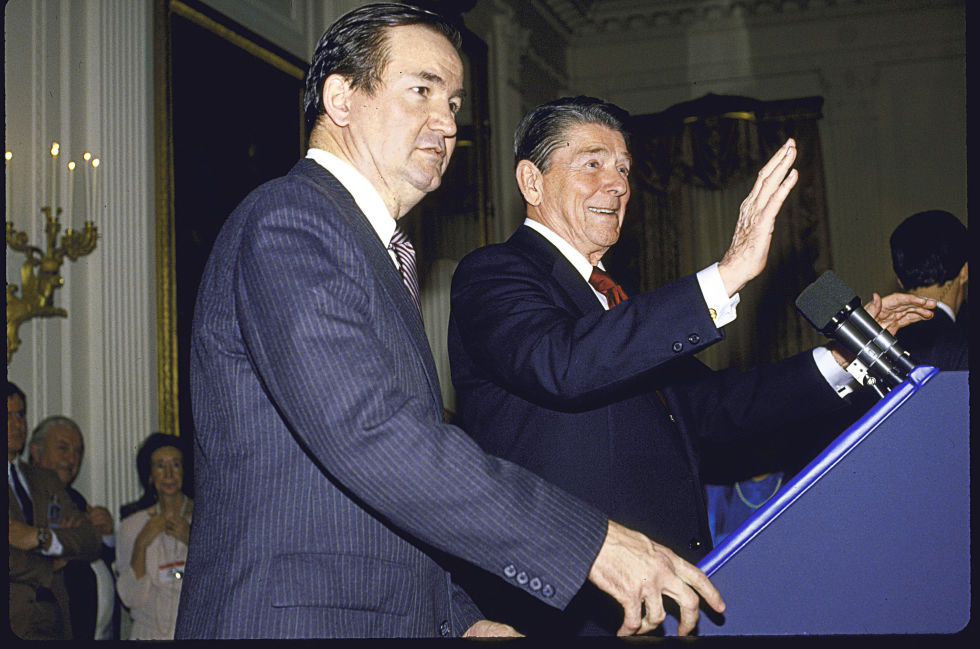Dr. Boyd D. Cathey

Politico Magazine, in its May/June 2017 issue, featured a long essay by writer Tim Alberta about Pat Buchanan and his role in American politics and culture, and in particular, the role he has had in sustaining a vision of a more Christian nation, and what that means during the Trump Era. And Alberta highlights one very central element in Buchanan’s life: his strong Catholic faith. He and his wife, Shelley, are regular communicants at the Saint Mary Mother of God Church in Washington. His Catholic faith has influenced him throughout his seventy-eight years, beginning with his childhood as one of nine children in an archetypical Catholic family of the 1950s, through his experience in parochial school, and then at Georgetown University and at the Columbia School of Journalism, on into writing, serving two American presidents, and running for president three times.

A few writers and pundits have begun to notice it, but even their comments cannot encompass or fully express what has happened intellectually to our society, to our present-day politics, and to our culture. At least one third, perhaps many more, of the citizens of our nation apparently live in a parallel universe, with its own set of foundational beliefs, its own standards of truth and narrative of facts. This universe in almost every respect represents the aggressive contrary, the negation, of the inherited, rooted principles on which our historic Western and Christian civilization is based. This “other” reality, this paradigm, did not all of a sudden just spring up or just appear, it has been cultivated and nurtured for centuries. Its creating philosophers understood that their operational premises and desired objectives ran up full force against the ingrained traditions and historic legacy of a culture and civilization that traced its origins not only to the beliefs of the ancient Hebrews, but also to the highest art and philosophy and statecraft of the Greeks and of Rome.
At the foot of the Cross even the Roman centurion recognized that here was No Ordinary Man, as the Gospel recounts. "Ave Crux spes unica!" "Hail the Cross, our Only Hope!" the old Latin hymn goes.
In recent years there has been a proliferation of what some condescending film critics have termed "Christian cinema," in a barely concealed effort to cordon off and pigeonhole films that favorably portray Christianity into a barely acknowledged, often sneered-at sub-category. These critics are wont to label such movies as "propagandistic" and "overly didactic." And, while some of the films in this genre do have a tendency to hit the viewer over the head with excessive sentimentalism, certainly not all do.
His “sin”? On April 11 he made an off-hand comparison of the supposed barbarity of Syrian President Bashar al-Assad with the crimes of German dictator Adolf Hitler over the use of poison gas. Oh, no! You can’t do that! You can’t even get close to that analogy! CBS News called the comparison a “colossal error,” and the rest of the media jumped in (including Fox) to condemn Spicer for his “being tone deaf,” and even “possible anti-Semitism.” It was a “serious gaffe,” Fox intoned. “You gotta know your history and can’t say some things!” was the nearly unanimous refrain.

